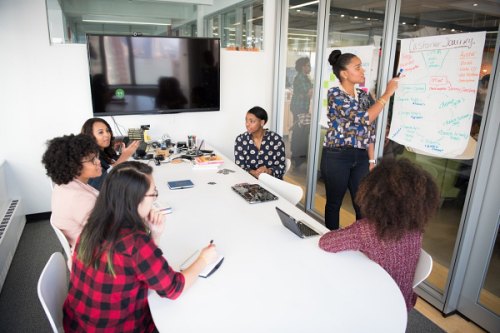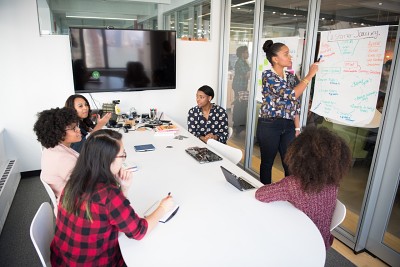Examples of Bad Social Skills
Are you looking for help to identify and understand the common examples of bad social skills? If so, then this article is perfect for you! Here, we will discuss different types of bad social skills that can have an impact on your career and life in general.
The main examples of bad social skills include poor communication skills (both verbal and written), lack of public speaking skills, and inadequate social etiquette or manners, lack of eye contact, inability to pick appropriate conversation topics, lack of empathy and understanding, inability to read body language, and not displaying patience.
Poor communication skills will make it difficult for you to get your point across and present yourself in the best possible light. Difficulty in public speaking can make it hard for you to sell yourself and your ideas, as well as to effectively collaborate with others.
9 Examples of Bad Social Skills & How to Fix Them
Are you curious to understand what bad social skills look like? Wondering if you possess any yourself? In the table below we explore the top 10 examples of bad social skills that can have an impact on your career and life in general, and ways to fix them!
| Bad Social Skill | Why it is bad | Potential Fix |
| Interrupting others | It shows a lack of respect for the speaker and can disrupt the flow of conversation. It can also be seen as rude and impatient. | Practice active listening and wait for others to finish speaking before chiming in. Ask questions and show genuine interest in what they’re saying. |
| Monopolizing conversations | It can make others feel excluded and unimportant. It can also prevent you from learning new things or hearing different perspectives. | Try to ask more questions and give others a chance to share their thoughts and experiences. Be aware of how much you’re talking and try to balance it out. |
| Lack of eye contact | It can make you appear uninterested or untrustworthy. It can also make it difficult for others to connect with you on a personal level. | Practice maintaining eye contact during conversations, but don’t stare too intensely or for too long. It’s also okay to look away occasionally. |
| Poor body language | It can make you appear closed off or defensive, and can make others feel uncomfortable or unwelcome. | Be mindful of your posture, facial expressions, and tone of voice. Try to appear relaxed and open, and avoid crossing your arms or fidgeting. |
| Inappropriate humor | It can offend or upset others, and can damage your relationships and reputation. | Be aware of your audience and avoid making jokes that could be offensive or inappropriate. Consider the context of the situation and whether or not it’s appropriate to make a joke. |
| Talking too loudly or softly | It can make it difficult for others to understand you or hear you, and can be seen as inconsiderate or distracting. | Practice regulating the volume of your voice to match the situation. If you’re in a loud environment, you may need to speak up. If you’re in a quiet environment, you may need to speak more softly. |
| Talking too much about yourself | It can make others feel like you’re not interested in them or their experiences, and can come across as self-centered or arrogant. | Make an effort to ask others about their experiences and interests. Share your own experiences, but try to keep the conversation balanced. |
| Not respecting personal space | It can make others feel uncomfortable or violated, and can damage your relationships and reputation. | Be aware of others’ personal space and avoid standing too close or touching them without permission. Ask if it’s okay to give a hug or shake hands. |
| Inability to read social cues | It can make it difficult for you to understand and connect with others, and can lead to misunderstandings or awkward situations. | Practice observing and interpreting social cues such as facial expressions, body language, and tone of voice. Consider taking a social skills course or seeking guidance from a therapist or counselor. |
As you can see from the table above, the majority of bad social skills involve failing to display respect for oneself and others. It’s important to recognize which of these bad social skills you may possess in order to effectively address them.
Overall, improving your social skills requires self-awareness, practice and patience. Investing time in developing yourself will help you build confidence in your communication, public speaking and overall social skills. It will also help you be better equipped to handle difficult conversations, collaborate with others effectively, and make a lasting impression on those around you.
LEARN MORE FROM THESE OTHER ARTICLES
Other Ways to Improve Your Social Skills
In addition to addressing the bad social skills listed above, here are a few tips for improving your communication and overall social skills!
Ask Questions
Make an effort to ask open-ended questions that can help you build connections and have meaningful conversations with others. This will help you to get to know people better and understand their perspectives, which will help build relationships.
For example instead of “How are you?”, you can ask “What have you been up to lately?”.
Listen Actively
Active listening is key for effective communication – make sure to listen carefully, pause when appropriate, and ask clarifying questions if needed. This will help ensure that you are correctly understanding the conversation and responding appropriately.
Be Assertive & Confident
Don’t be afraid to share your opinions, but try to do it in an assertive and respectful way. Being confident in yourself and your ideas will help others take you seriously.
For example, instead of saying “I don’t know if this is a good idea…”, you can say “I think this may be a better solution…” – this is a great way to communicate your ideas without coming off as too timid or insecure.
Practice & Seek Guidance
The best way to improve your social skills is by practicing them! Consider taking a class or attending workshops that focus on communication, public speaking and other related topics. You can also always seek out guidance from a therapist or career coach if needed.
There are some great YouTube videos that provide informative videos on developing social skills:
and
Watching these can help you gain a better understanding of how to better interact with others in different situations.
Remember, having good social skills is an important part of your professional and personal life. Investing time and effort into improving your communication and social skills will help you build relationships, improve job performance, and advance in your career.
FAQs
What are examples of social skills?
Examples of social skills include being able to communicate effectively, both verbally and in writing. Other examples include active listening, being assertive and confident, respect for oneself and others, being able to read social cues, understanding how to interact with different people in a wide variety of situations, and problem-solving.
What are the consequences of poor social skills?
Poor social skills can lead to strained relationships, difficulty in the workplace, and a lack of confidence both personally and professionally. This is why it’s important to recognize which bad social skills you may possess in order to improve them – to guarantee success in all aspects of life.
What is a lack of social skills a symptom of?
A lack of social skills does not mean that a person suffers from any particular mental disorder. However, people with social anxiety, autism spectrum disorders, attention-deficit/hyperactivity disorder (ADHD), and other mood or developmental disorders may have difficulty with certain social skills.
If you are experiencing difficulty with social skills and think it may be due to a mental disorder, it is best to speak with a doctor. They can provide a diagnosis and treatment plan if needed.
Conclusion
Having strong social skills is essential for success in both our personal and professional lives. We can improve our social skills by asking open-ended questions, actively listening and being assertive and confident when expressing our opinions. Practicing these skills through classes or workshops as well as seeking guidance from a therapist or online are all important steps to take.
Keep in mind that investing time and effort into improving your communication skills will help you build strong relationships and advance in your career. Good luck!











